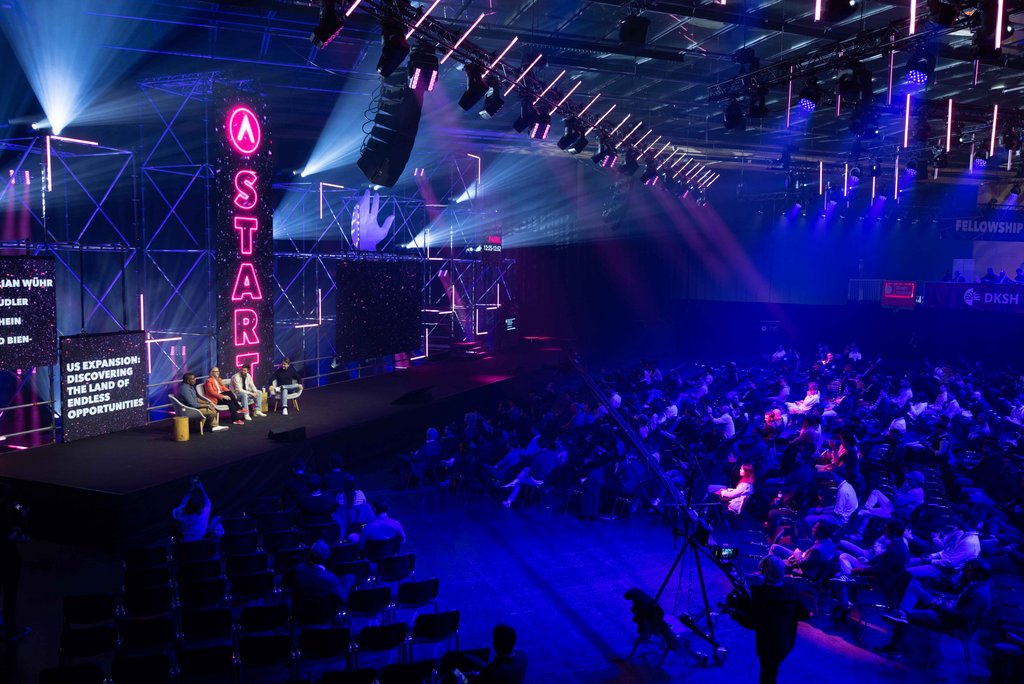Research - 21.02.2024 - 10:04
Camels instead of unicorns: New HSG book accompanies start-ups on the path to sustainable growth
If start-ups grow too quickly, it can lead to problems. HSG researchers have published the "Scale-up Navigator". It shows in concrete terms how start-ups can grow sustainably. The book complements the ambitious start-up programme that HSG and the Canton of St.Gallen are launching together.

"Many successful start-ups fail because they cannot cope with their rapid growth. For example, they can no longer deliver the usual quality to their customers because their infrastructure or staff cannot cope with the high demand," says Dietmar Grichnik, HSG professor of Entrepreneurship. Because of this, he has published the book "Scale-up Navigator”. It is meant to guide founders and show them how to achieve sustainable growth.
The book is also aimed at mentors and other stakeholders. "It is not theoretical, but is a concrete handbook that uses four phases to highlight common challenges and solutions," says Grichnik. A scale-up is a company that increases the number of its employees and its turnover by 50 to 100 per cent annually – which shows it is going through a strong growth phase.
The "Scale-up Navigator" fits in with the ambitious start-up programme presented by the St.Gallen cantonal government at the beginning of February: Among other things, the "HSG START Accelerator" will be set-up with CHF 5.4 million in start-up funding - a programme that supports national and international start-ups in their growth and professionalisation. The canton, HSG, the student organisation START Global and the Innovation Park East are also involved. "There is currently positive momentum in St.Gallen when it comes to promoting start-ups and various partners are working towards common goals," says Grichnik.
Examples demonstrate the strategies of scale-ups
Grichnik compiled the book together with Manuel Hess, HSG expert for start-up financing, and HSG doctoral student Michael Greger. Andreas Göldi and Florian Schweitzer from b2venture, one of Europe's leading venture capitalists, contributed the investor's perspective as well.
"We use examples of successful companies to show different strategies that scale-ups can adopt." Examples include the AI translation service DeepL, which relied on a strong technological solution as a driver. The payment service SumUp and 1Komma5° - co-founded by HSG graduates - or the St.Gallen-based company Frontify are also presented.
The book also includes an ESG guide, which is intended to make scale-ups fit in terms of sustainability. "The inclusion of ecological, social and structural sustainability is mandatory for companies today - and potential investors are asking for it," says Grichnik. The barriers to scaling up companies quickly are also currently falling in Europe. "This is due in particular to the development of AI, which makes it possible to automate many business processes. These used to take up a lot of resources in culturally and legally diverse Europe."
Grichnik emphasises that the Navigator focuses on steps towards sustainable growth. "Among other things, the book uses the image that scale-ups should be camels instead of unicorns - in other words, resilient workhorses instead of mythical creatures." In the start-up scene, unicorns are non-listed companies that are valued at one billion.
HSG programme coaches hundreds of start-ups every year
Start-up promotion is a central point of the HSG strategy. The Startup@HSG programme coaches several hundred start-ups in the early stages every year. Together with Manuel Hess, Grichnik published the Start-up Navigator a few years ago.
At the beginning of 2024, the "Corporate Venturing Navigator" was added, which supports companies in setting up an investment programme with a focus on start-ups. "On the one hand, the St.Gallen Navigators complement the HSG's funding programmes, which are centrally anchored in the new Vice President's Office for Innovation & Quality. On the other hand, they also form a work that covers a wide range of challenges in the start-up ecosystem," says Grichnik.
Various material on the three navigators is available at stgaller-navigator.com.
More articles from the same category
This could also be of interest to you
Discover our special topics
















